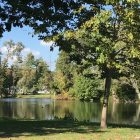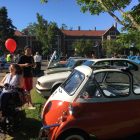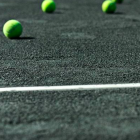News
Through Sports and Spicy Peppers, New Canaan Family Leads the Way in ALS Research
|
[The NewCanaanite.com Summer Internship Program is sponsored by Karp Associates.]
Right here in New Canaan, one family is helping to lead the way in the fight against ALS. Meet the Haberstroh brothers, who lost their mother, Patty Haberstroh, two years ago to a seven-year battle with the progressive neurodegenerative disease.
The brothers, in their own respective ways, have spearheaded innovative and ever-expanding initiatives to beat ALS. A few months after their mother was first diagnosed, the Haberstrohs were inspired to start the “ALS Pepper Challenge” – a trend where individuals consume hot peppers on camera and convince three others to join in. What began as a single video of the Haberstrohs consuming spicy peppers in their New Canaan kitchen soon exploded into a viral social media sensation.
“It took off beyond our wildest dreams – it went viral all over the world, including with celebrities and athletes. It was amazing to see how it took on a life of its own,” said one of the brothers, Steve Haberstroh.




